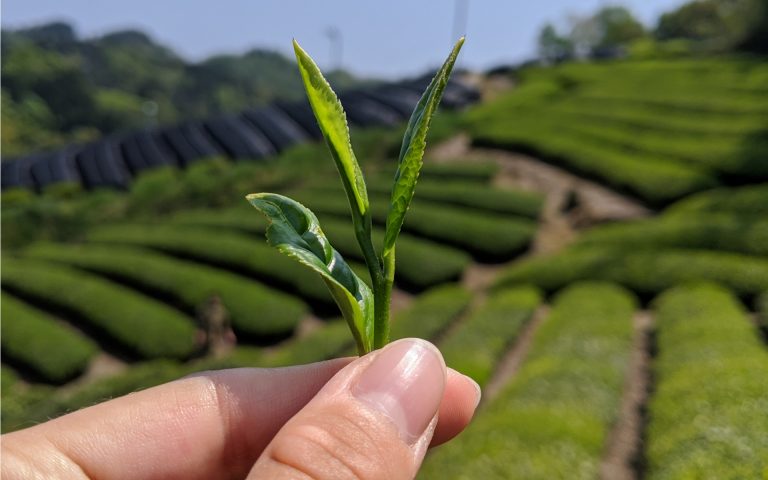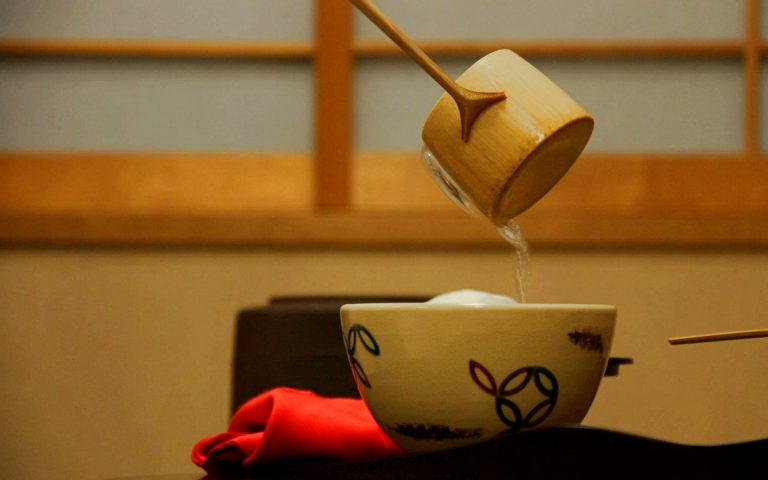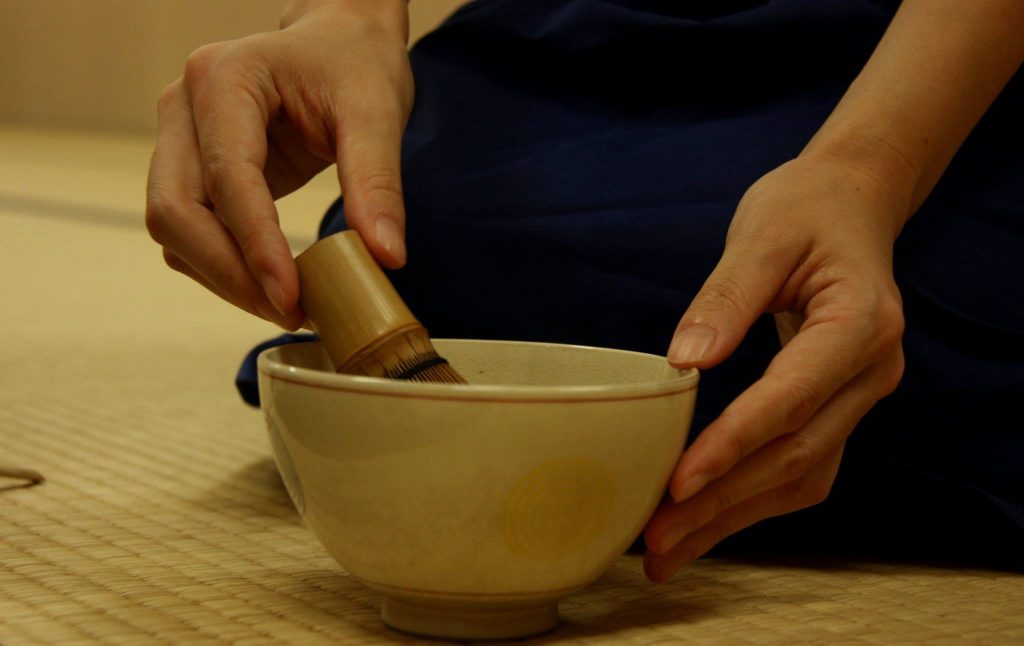Rūta Katiliūtė
Author of the text
Matcha tea, with its wonderful green colour, is not only a great pleasure for the eye and the taste buds, but also a gift for the body. The benefits of matcha have been known since ancient times – matcha was nicknamed the elixir of immortality in ancient times for its beneficial effects on the body, and nowadays matcha tea is often referred to as a “superfood”.
The benefits of tea - recognised since ancient times
The tradition of powdered tea dates back to the 8th century. China, and in the 12th century Eisai, a Japanese Zen Buddhist monk, became interested in the tea and brought it to Japan. In ancient China, tea has been drunk as medicine for centuries. The tea was believed to help with indigestion, speed up wound healing and prevent heart disease.
In ancient Japan, tea was also known as a special elixir of life. 12th century Matcha tea, which is part of the Japanese Zen Buddhist tradition and perfected by monks, has become an integral ritual. This tea helped the monks stay awake during night prayers.
Fascinated by the magic of tea, the monk Eisai wrote a book on tea making and the health benefits of tea. Translated from Japanese, the book was called “On Drinking Tea for One’s Health”, and the very first sentence was: “Tea is the ultimate mental and medical remedy and has the ability to make one’s life more full and complete.”
The 4 benefits of matcha tea for our body
Modern scientific research also supports the potential health benefits of matcha tea. According to research, the biologically active compounds found in tea have beneficial effects on the human body. Matcha has antioxidant, antibacterial, anti-inflammatory, potentially anti-cancer, cardiovascular and nervous balancing properties.
Normally, when making tea, the tea leaves are brewed with water and discarded when the tea is drunk, so that only part of the tea’s nutrients are absorbed. When drinking matcha, the leaves themselves are consumed, allowing the body to maximise the absorption of the beneficial properties of the tea leaves and the water-insoluble (and therefore not available in a regular cup of tea) vitamins and minerals.

1. Matcha - a rich source of antioxidants
Tea leaves are rich in catechins, compounds with strong antioxidant properties. Catechins account for about one third of the bioactive compounds found in tea leaves. A cup of matcha tea is believed to have antioxidant concentrations that surpass a regular cup of tea by as much as 3–10 times.
Antioxidants play a crucial role in fighting free radicals. Free radicals are unstable molecules formed during oxidation in cells. To stabilise themselves, free radicals destroy healthy cells by damaging their DNA, which affects the development of chronic and cancerous diseases and is associated with premature ageing. Antioxidants help to reduce excess free radicals, boost immunity and maintain youthfulness.
2. May help prevent heart and circulatory problems
Catechins in tea are thought to reduce the risk of heart and circulatory problems. In 2011 Studies by the American Society for Nutrition have shown that catechins in tea help to lower bad cholesterol, and by 2020 An 8-year study in China showed that people who drank tea regularly (at least three times a week) had a 39% lower risk of heart disease or heart attack, a 56% lower risk of fatal heart attack, and a 29% lower mortality rate than those who didn’t drink tea or drank it only occasionally.

3. May help control weight
Various studies suggest that the catechins in tea can speed up metabolism and help break down fat faster, while the caffeine in tea increases thermogenesis (the body’s ability to release heat when burning calories), which can help with weight loss.
Matcha tea itself is almost calorie-free and the caffeine it contains provides energy. With more energy, you’ll want to move more, which means more calories burned and faster weight loss.
However, it is worth remembering that the effects of tea on weight loss are mild and only ancillary, and it is worth following a balanced movement and diet plan that suits you for effective results.
4. May help combat stress and improve brain function
The tea leaves used to make matcha tea are covered from direct sunlight for several weeks before harvesting. This increases the amount of the amino acid L-theanine, found in tea, in the leaves. This compound gives the tea its sweetness and distinctive umami flavour. L-theanine is thought to have a positive effect on the nervous system and brain function – reduces anxiety, gives a feeling of alert relaxation, lifts the mood.
L-theanine also helps you think more productively and concentrate more easily. When we experience intense emotions – fear, frustration, anger, pain or anxiety and stress – our minds operate in high beta-wave mode. L-theanine is said to raise alpha brain waves – this creates a state of calm alertness, relaxation, creative thinking, states of meditation.
Matcha is a highly tonic and invigorating beverage with a high concentration of caffeine, but unlike coffee, matcha’s caffeine is slower and longer lasting, more balanced, thanks to the L-theanine in tea: the caffeine is energising but does not cause the anxiety that often accompanies a cup of coffee.
Preparing matcha itself is a relaxing, enjoyable process. It’s a minute for yourself and a cup of tea. The preparation of matcha evokes subtlety and beauty in simplicity, Japanese aesthetics and a pause in the fast pace of life.

The benefits of matcha tea are still being explored
These are just some of the benefits of matcha. Please understand that the benefits of tea for the body are still a research phenomenon, and the research is often limited and controversial. This information is a general guide, so please do your own research, check with your doctor and always listen to how your body reacts to the benefits of tea.
Have a delicious tea.
Sources used
1. Xin-Xin Z., Yan-Lu X., Shao-Hua L., Xu-Xia L., Rutai H., Xiao-Hong H., (2011), Green tea intake lowers fasting serum total and LDL cholesterol in adults: a meta-analysis of 14 randomized controlled trials, The American Journal of Clinical Nutrition, Volume 94, Issue 2, Pages 601-610.
2. Xinyan W., Fangchao L., Jianxin L., Xueli Y., Jichun C., Jie C., Xigui W., Xiangfeng L., Jianfeng H., Ying L., Liancheng Z., Chong S., Dongsheng H., Ling Y., Xiaoqing L, Xianping W., Shouling W., Dongfeng G., (2020), Tea consumption and the risk of atherosclerotic cardiovascular disease and all-cause mortality: The China-PAR project, European Journal of Preventive Cardiology, Volume 27, Issue 18, Pages 1956-1963.
3. Abdul G. D., Claudette D., Dorothée R., Lucien G., Nouri M., Marc F., Philippe C., Jacques V. (1999), Efficacy of a green tea extract rich in catechin polyphenols and caffeine in increasing 24-h energy expenditure and fat oxidation in humans, The American Journal of Clinical Nutrition, Volume 70, Issue 6, Pages 1040-1045.
4. Nobre A. C., Rao A., Owen G. N., (2008), L-theanine, a natural constituent in tea, and its effect on mental state. Asia Pacific Journal of Clinical Nutrition. Volume 17, Isue 1, Pages 167-168.

